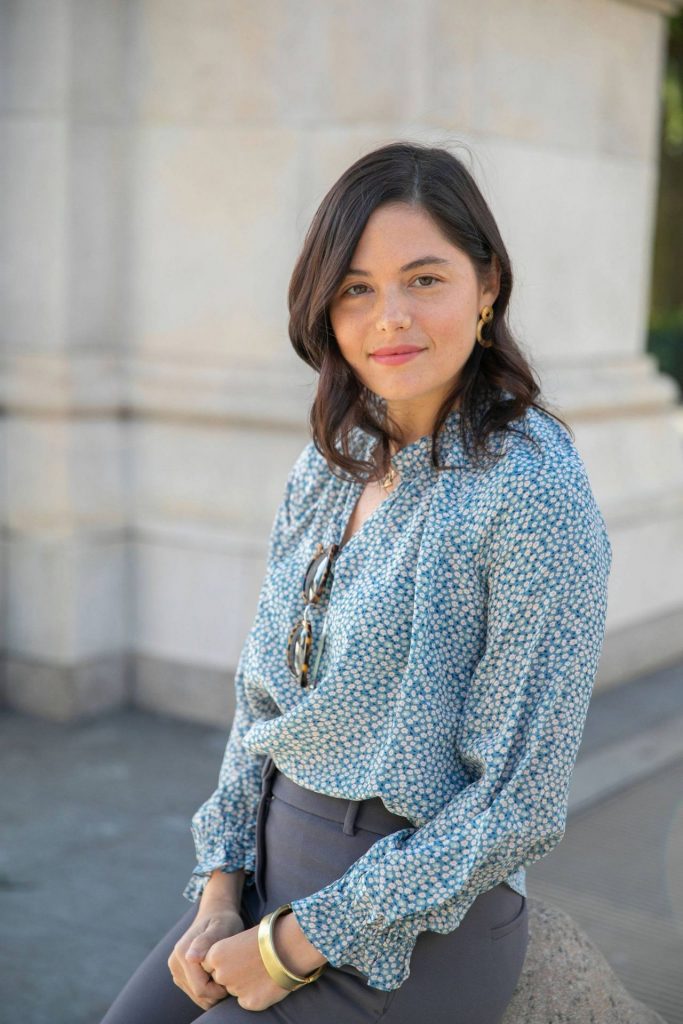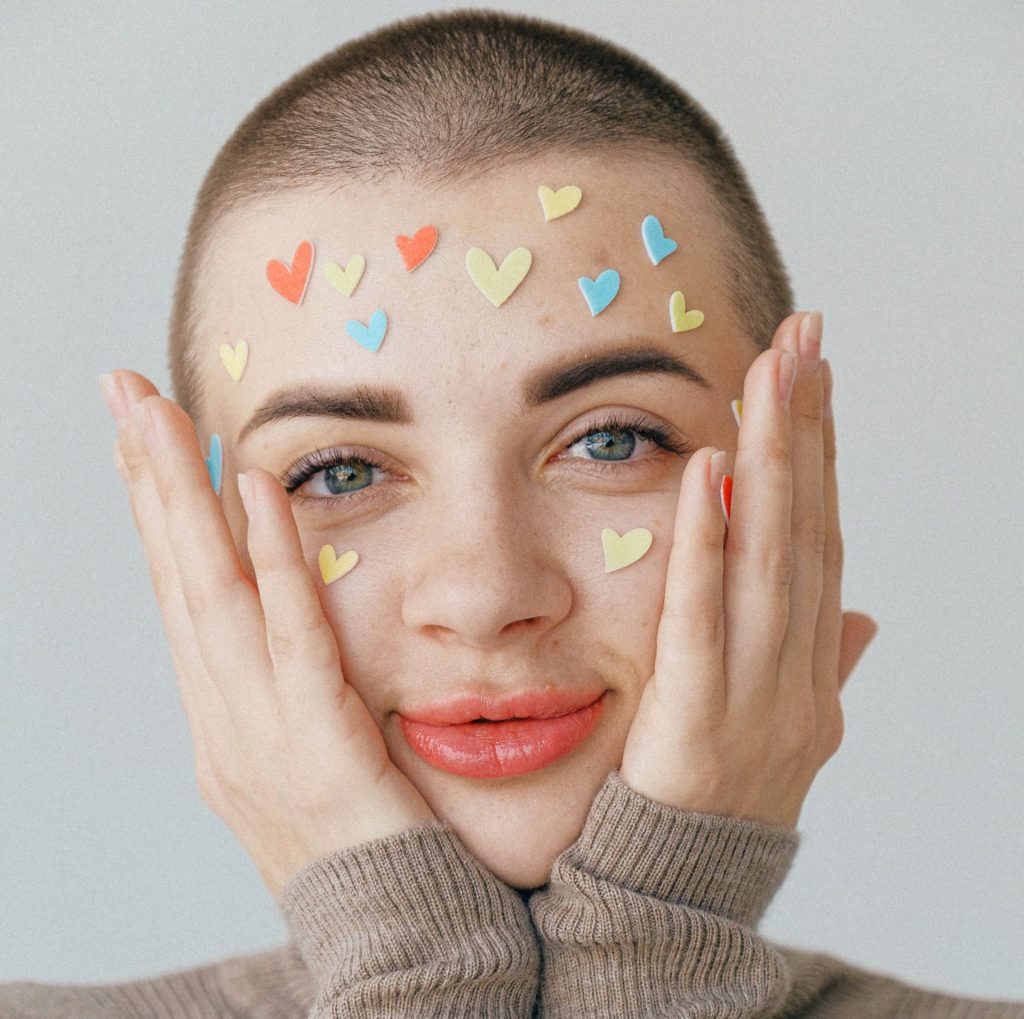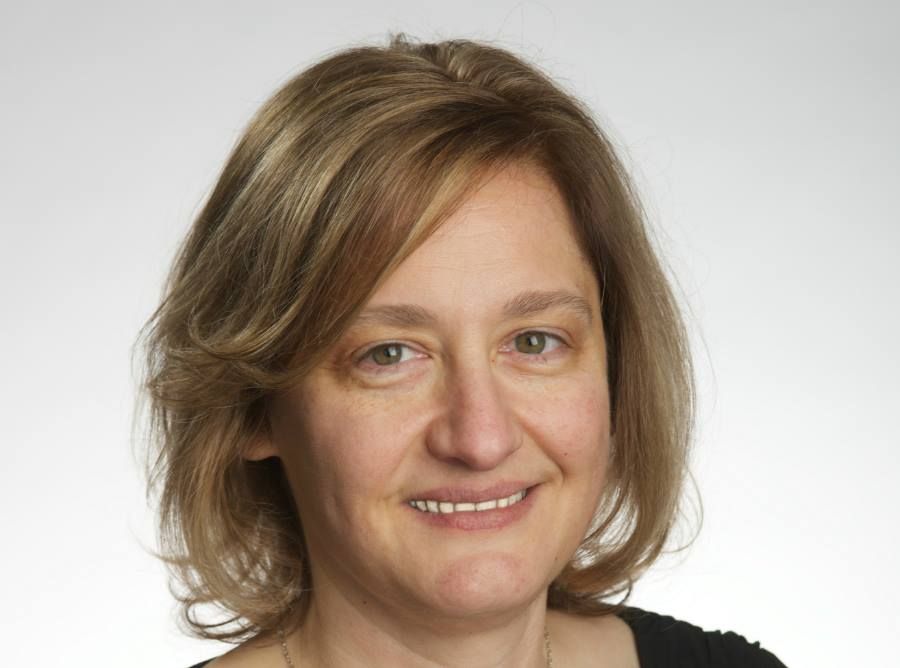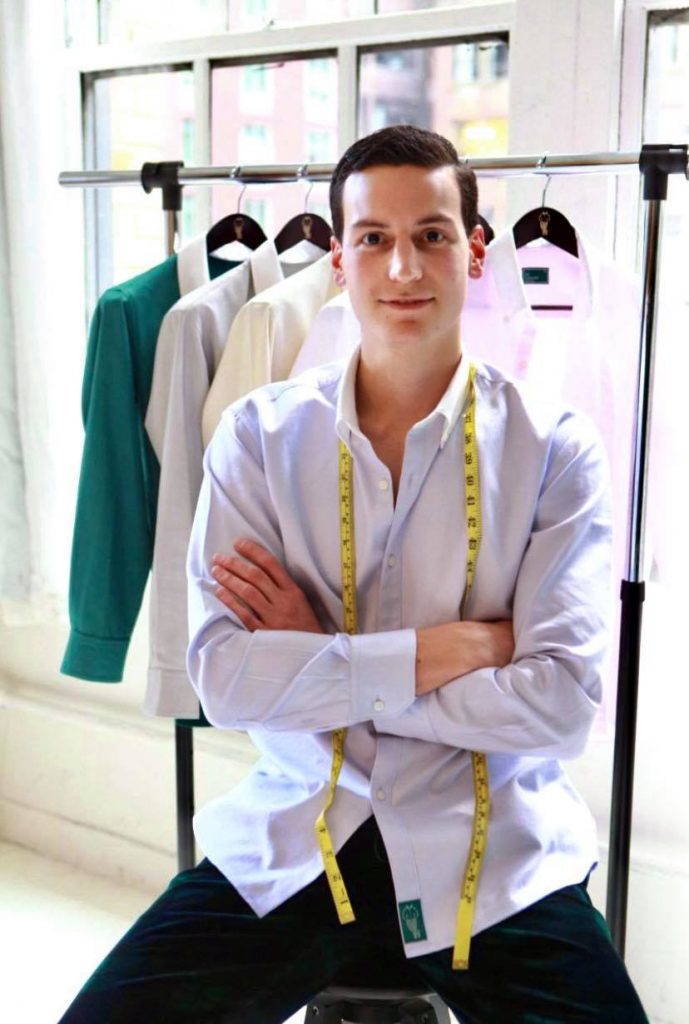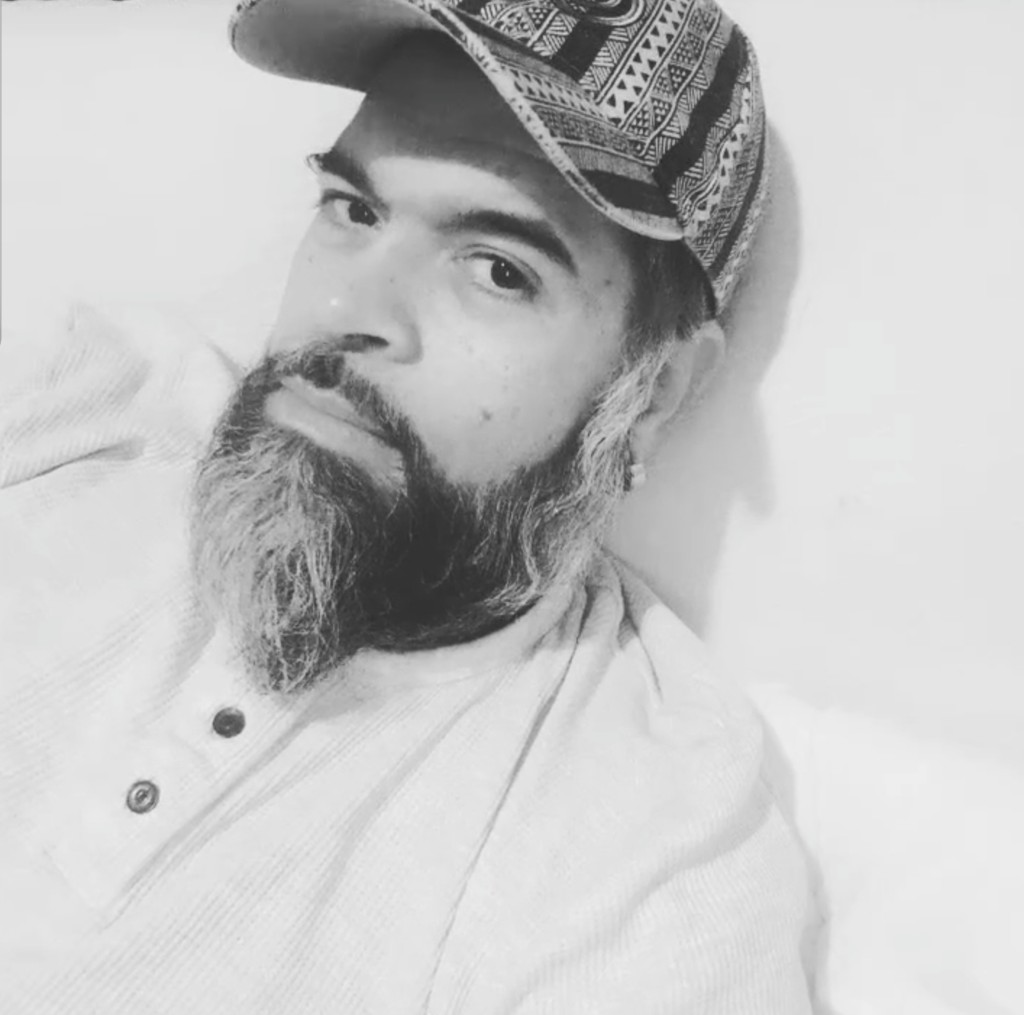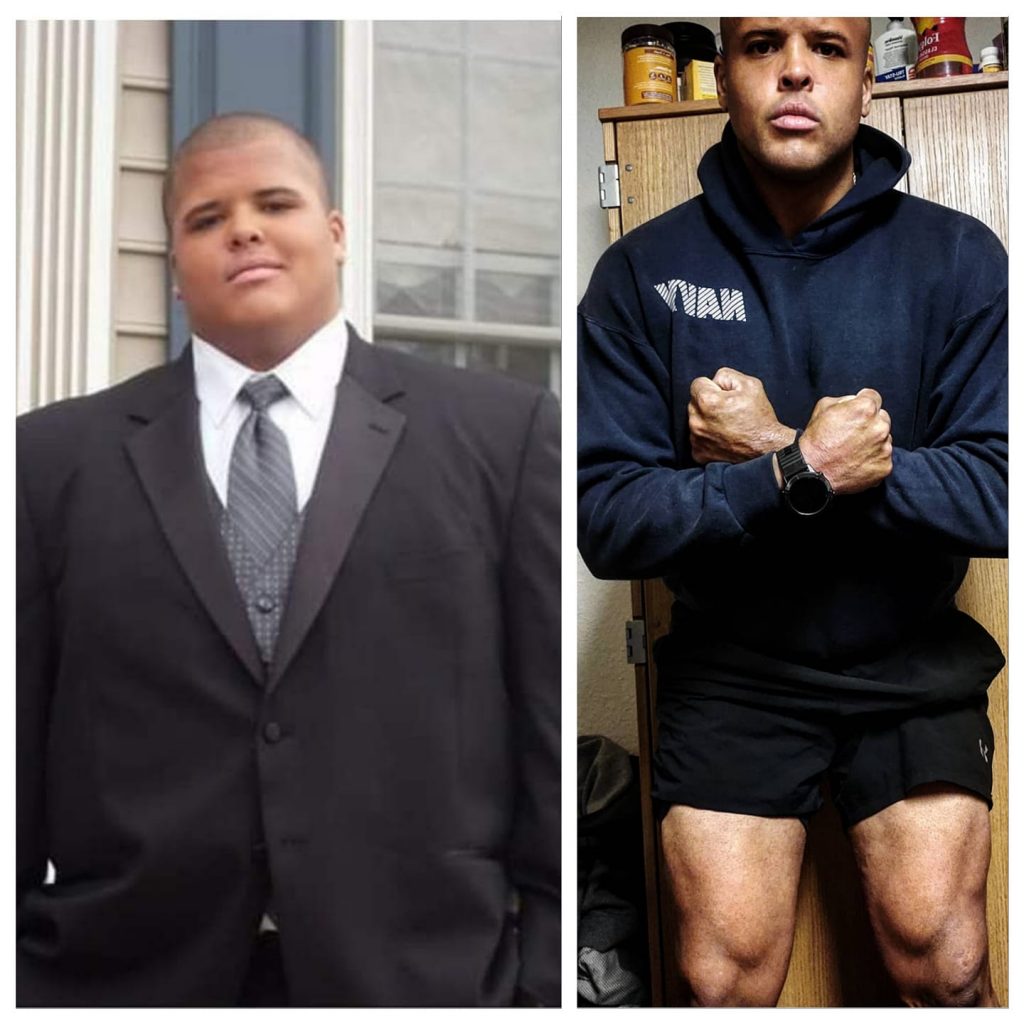Alana Kessler once suffered from an eating disorder. Her experience changed her, enabling her to now become a more mindful eater and to teach others to do the same.
TAMAR: Hi, everybody. I’m so super excited. I have a guest that I have known for a really, really long time. I know her so long that I actually named my daughter after her. Just joking, but I do have my daughter with the same name. I’m so excited to have Alana Kessler, who’s here right now. She’s checking in from New York, in the Hamptons, where she is isolating safely. Right?
ALANA KESSLER: Yeah, thankfully, definitely, very safely, with mask on all the time when I’m within distance of people.
TAMAR: Yeah. Thank you so very much for joining me.
ALANA KESSLER: It’s a pleasure. I’m so happy to be here and connect with you. It’s so nice.
TAMAR: Maybe we could just talk about how we knew each other and what you’re doing these days. And what has kind of happened, I mean, we’ve been in touch. Thanks to social media, we haven’t really lost too much touch with each other. But how was that evolution? What are you doing these days?
ALANA KESSLER: So, what am I doing these days. First of all, I feel really lucky to be healthy and to be able to spend time with family. It’s been really nice. And work I’m doing these days is basically facilitating a 360-degree wellness brand that I created over the last 3 years that was born out of my 20 years of nutrition, mindfulness yoga, Chinese medicine, Ayurveda studies, practice, and expertise. And I’m excited about it. I love working with people. I work one-on-one in a capacity. And I work in groups in a 28-day challenge capacity where it’s more of a community inspired coaching, supportive environment where we do challenges together and collect each other’s stories, share and build skills and tools for wellness together, which is beautiful and lovely. And I’m excited. I feel really lucky that I get to do what I love. And I get to enjoy people’s transformations and journey. And I just feel lucky.
TAMAR: That’s awesome. Yeah. And you launched it today, right?
ALANA KESSLER: I launched the monthly 28 Day Challenge Community today. So, September 14, is the first 28 Day month, and it will be something that I do every month, but the first month starts on September 14.
TAMAR: So, I’m really excited. I’m so excited for you. I think that’s awesome. I love the idea of just having a close-knit community around like-minded wants and needs and desires. We’ve known each other since sleepaway camp when we were young kids, and watching how you’ve been able to overcome and do things that literally everybody wants to have and you basically did an embodiment of who you are. And I think that’s amazing.
ALANA KESSLER: Thank you.
TAMAR: Yeah, so tell me if this touches upon the second part of that. Tell me a little bit about how you got to like this whole sense of Ayurveda, mindfulness, yoga, nutrition. How you evolved from sports camp to today.
ALANA KESSLER: Yeah. So, I’d say that it is an evolution but I would say that the mindfulness part has been something that’s always been there for me. I’ve always been even as a kid in summer camp. When I was playing sports terribly, but doing a lot of theater, musical theater, I was always super intuitive and always able to see people. I feel like I was always somebody who people would come to for advice or help with understanding situations and circumstances that might seem overwhelming or confusing. I remember very clearly being in summer camp and counselors coming to me with their problems about their boyfriends or conflicts that were going on. And I would always kind of give my advice. I’m not quite sure where it came from. I feel like in a lot of my healing work over the years, I’ve gotten different reasonings and rationales, but I would say that’s always been the case. And I think that it’s a double-edged sword, being someone who is very emotionally intelligent, and also intellectual. You live in your head a lot, and you’re constantly processing and you’re constantly taking in information through your senses through your brain. And if you don’t quite know how to process that through your body, it can sometimes become a problem which is a lot of the crux of what I do now. Years later, I realized that is a root cause of a lot of issues. And for me, I developed pretty significant mental health challenge, which was in the form of an eating disorder. I struggled with bulimia for about 15 years. So, when I was 16, until I was about 30, 31. So, for me, that was definitely a huge impetus for my quote, unquote, healing journey. And, again, it started off as something that was an obsession and then became something that transformed into what helps me heal and find my way into a more integrated and loving relationship with myself. So, I started to practice yoga when I was about 18 years old. So that was almost 22 years ago now. I also was studying nutrition in college, which ended up being my major and ended up being my degree and I ended up becoming a registered dietitian. I got a Master’s as well in Clinical Nutrition. So, I was very enmeshed in the nutrition world, as well as being enmeshed in the yoga world. And those 2 were very separate for a period of time. And then they became something that melded together over the years. I opened up a yoga studio in 2008 and basically started setting Ayurveda, traditional Chinese medicine, and different types of yoga. I was already a practitioner of meditation and mindfulness, but I started teaching in 2008 as well. So, this was really just a slow burn as far as me being someone to offer this type of holistic 360 degrees kind of wellness offering for people. Hopefully that makes sense.
TAMAR: Listen, you’re doing stuff that I wish I knew about earlier. I guess also at the end of the day, I would have killed to be smart about nutrition. And I wasn’t. When I had, it’s weird. When I had my first child, I sat in front of the TV, and I started watching Top Chef. And I would say that watching Top Chef, refined my palate, and then I became a foodie just by watching TV. And never, never turned back.
ALANA KESSLER: Well, I mean, food for me was not my friend for so many years. You know, it really wasn’t. I had such an adversarial relationship to food. It was such a struggle. You know, when I was in the throes of the eating disorder, it was definitely a complicated relationship. And it is a complicated relationship that we have with food. Food is something that we’re conditioned to as a soothing mechanism. There’s so many psychological and emotional undercurrents of what food means to us that we don’t quite understand. It also impacts our hormones. It also impacts our gut health. It’s so interrelated to everything. And it’s so connected also to our psychology and our mental health. So, it took such a long time for me to have a healthier relationship to food. And when I left my job as a clinician, back in 2007, I actually didn’t expect to do nutrition at all. Again, I left the job because I knew that it wasn’t a healthy motivation for why I was doing nutrition. So, I left the clinical job and decided that I was going to go and be of service in a modality that was helping me to heal, which was yoga, which is why I opened the yoga studio instead. And I actually was just managing the studio and teaching for a while. And then I started to study Aryuveda, which started to make food make more sense to me, because I started to understand how food is as nourishment, and not punishment. I started to understand how food relates to me as an individual. Not this kind of overarching philosophy or trends about how food should be eaten. It was more of an understanding of how I needed to eat the food. For someone like me who is analytical and who does like to understand things in order to feel safe, understanding why I was eating this food and how it was going to support me helped me shift my relationship to food, and really changed my attitude about how I can start doing nutrition again. Some students at the studio knew that I was a dietician and started asking me questions about nutrition. So, I really just started counseling them. But then I started counseling them with Ayurveda as well. I started to blend my nutrition counseling with Ayurveda, which is the eastern science of nutrition, in the yoga tradition. And that’s when I started to feel much more aligned. And I started to have a lot more integrity for me to start doing nutrition. And because I was running the studio, I didn’t have much time to offer proper nutrition services. But as the years went on, and as the yoga industry changed, and as I continued to be a student of all these different modalities, which I continue to put first and foremost in my life, I have a daily yoga meditation practice, whether it’s at 6 am, or whether it’s at a random time in the day, I always do my practice. And sometimes it’s not 2 hours, sometimes it’s less, but we are the healthcare leaders, you’ve got to get to that. Yeah, as the industry changed for yoga, I saw a new opportunity for me now, to serve in this new way, where I could be a good linchpin for all these different modalities through one-on-one coaching. Now, especially because of COVID, and just the new way the world is at the moment, this new integrated studio experience, is kind of being online. So, I’m offering this now in my 28- day challenge community with nutrition and yoga and meditations. And this feeling of being alive, living in a community like I had at the studio, feels really full circle to me, which is really nice.
TAMAR: Yeah, and it’s definitely the right type of payment right now. There’s a lot of these challenges that I knew about beforehand, but everybody was up in the hustle and bustle moving around, and now we’re all confined. And there are many challenges because people aren’t thinking about it. So, I think this is all right, this is perfect. This, you know, starts the year right. Like when you think about the academic year anyway. You know, you could focus on getting an interesting community because of that as well.
ALANA KESSLER: Yeah, I’m looking forward to it. I’m really excited about it. Feels really authentic how I want to teach and how I want to share and how I want to be creative with wellness because ultimately to me, wellness is a creative endeavor. It really is about consistent and constant change as humans, and growth. And, yeah, I just love the space that there is and the structure. Two of my favorite things are space and structure.
TAMAR: Cool, cool. You talked about your kind of dark period in your life from ages 16 to 31. Do you want to talk about the rise above adversity, kind of touch upon it, but at the same time elaborate any further on it or anything that you would want to. Say, takeaways or I don’t even know the type of question that I would ask. But is there anything you would potentially want to elaborate on?
ALANA KESSLER: Yeah, I’d say that there were many dark periods. You know, the thing about an eating disorder which I think is really interesting for people, is really relevant in general is that it really is there to try and protect you. And you know, one of the saddest parts as I was healing, one of the saddest parts that I realized about the eating disorder was that there were some points in my life where the eating disorder was really the most intimate relationship that I had in my life. I’d say the darkest part was that I wasn’t really able to have really intense relationships because the eating disorder kind of hijacked a lot of that energy from me. And it happened slowly over time. And so, there’s so many looking back. I’ve been sober. I call it sober, sober from the behaviors of the eating disorder for about 8 years. I still struggle with some mindsets of the eating disorder. Like, I will start to notice myself, starting to get a little bit hung up on food, and when that happens, I know that there’s something misaligned within me. But there were periods, I would say that my 20s, I don’t quite remember well, there was a lot of obsession and preoccupation with food and with my body image and fear over being judged a lot, and just a lot of fear. And I would say that that’s the hardest part. And you know, there’s this kind of like an abusive relationship that you have, where you think it’s going to make you feel good and then it makes you feel good for maybe 20 minutes, and then you just feel so terrible. For me the eating disorder was that high thinking about the binge, buying the food for the binge, and then the actual purging. But usually, there was a lot of guilt that would come around that transition between the binge and the purging. You kind of wish that you didn’t have to do this, and there would just be this despair. And so, I’d say that darkness was really just navigating those highs and lows, and it became really, really challenging. I mean, there were times where I really couldn’t do much else other than taking my binge and purge and just show up for my life. I was like a functional food addict essentially, and just kind of hide behind my charisma and my ability to connect with people intellectually. A lot of people did not know that there was anything really going on with me other than the fact that I couldn’t really forge and sustain any kind of intimate relationships. That was something that I couldn’t sustain because ultimately, when anybody would get too close, it just wasn’t possible because the eating disorder needed space to be able to live whenever it needed as a representation of my emotions. That’s something that I had to learn to overcome.
TAMAR: Let me ask you something. Have you found that this might be why, you told me a previous time, that you’re like a codependent? You feel that might have made that impact and that’s why you know how it had affected relationships and feel it’s effect like it has that impact that causes the codependency?
ALANA KESSLER: Yeah. I definitely had a codependent relationship with food. And that kind of impulse-control, impulsion-compulsion paradigm is the paradigm that I then would take into relationships. So, I didn’t really have the ability to be in a neutral state or to let things unfold. I didn’t trust in that process. So, the process of unfolding, the process of uncertainty, the process of everything that has to do with intimate relationships, needed a resolution fast. So, codependency is really something that happens when you don’t know how to meet your own needs. So, you want something to immediately meet your needs. And a lot of times, you don’t know what those needs are. Either you know, or you just want to be you just want to be, you want to be filled up.
TAMAR: Yeah, I want to tell you, for the listeners here alone, I actually was featured on a video podcast on her side. We talked about this at the end. You made me realize, you gave me kind of a revelation, that codependency. I have had the same struggle. And I don’t know if you realize that, but I couldn’t articulate it. But when I had a postpartum depression, I hit what I considered my tragic moment. And ultimately, that was me being completely weak, to the point that I didn’t know how to take care of myself and know how to have, as you said, my own needs met. I became vulnerable. That vulnerability made me basically become dependent on somebody else that I couldn’t function without that somebody else. And one day it was gone. To me, that was the worst thing I probably have gone through in my life which is weird because in the grand scheme of things people are not so bad. I think I’ve raised this in a past podcast, but you know, this happened around the time my friend’s daughter died. Her 10-week old baby had SIDS and passed away. Literally, one of my closest friends at that point. And I’m struggling with something that there’s no comparison. But you know, there’s a lot of judgment. And it was really very, very difficult. There’s always that perspective that it’s never going to be as bad as that. But you know, it’s how you internalize your own reality. It’s not about the severity of the reality. Some people are more capable of handling things and some people are really weak. I don’t know. I was just thinking out loud.
ALANA KESSLER: Yeah, I mean, codependency definitely comes with a deficiency and maturity, or whatever. I definitely can look back on my life and I can see where I didn’t get maybe my needs met when I was young. And I lived in my head and I created a world for myself that was safe for me. I had until a certain age or until certain experiences triggered me to have to engage my mind, body and soul. in a new way, and I just didn’t have the tools. There’s no blame, no one’s fault, per se. But I didn’t have the tools. I was a teenager, and it just didn’t fly anymore. There were so many other things happening. and I didn’t know how to deal with it. So, I developed a coping mechanism with my eating disorder. I remember feeling really lucky at first. I felt that was a secret that I had and was mine. I had a way that no one else had, and it felt very safe. As I grew, it grew with me. I don’t know if you watch Stranger Things, but I love Stranger Things because of that reason. I feel that the monster that kind of grows with in me was my eating disorder. Like the darkness, all of a sudden it takes over and it has to be exorcised because the monster takes over the whole thing. And that’s kind of what happens. At first you think that you kind of control it, and then it controls you, and you are codependent on it. You are. For me, I was completely codependent on that dynamic. But then you’re forced into being an adult and you have to function and then it’s kind of seeps out in other areas. You see it in your relationships where you just didn’t develop. The eating disorder was there, you didn’t develop the skills that you need to cope. I didn’t get the experiences at the appropriate ages that I needed to get feedback and grow and mature. So, that was my immaturity deficiency. And so, as I got older, I would project these kinds of childlike needs to people because I didn’t grow myself in those areas. And that essentially is the definition of being codependent. I had to go easy on myself also, because I realized that so many more people are codependent. So, I’m not the only one.
TAMAR : But you gave me the realization that I considered it always vulnerability and a weakness for exploitation. But at the same time, it wasn’t just about that. Obviously, there’s a weakness inside of me that put me in a position of like, meeting that type of guests latching on because I wasn’t able to sufficiently take care of myself. So, it was a revelation afterwards. It took me some time and I’m like, “Wait a minute, I need to Google the phrase because I have to figure this out.” And it made a lot of sense. So, I thank you for turning the light on and making you see the light there.
ALANA KESSLER: You’re welcome. I think it’s really important for people to talk about this stuff out loud because I think a lot of times, we can overlook it because on a lot of cultures, codependence is actually about a value. So, I think it’s a nuance, codependence and interdependence, and I think what we really all want is interdependence. But what a lot of cultures facilitate is codependence and that is because people don’t want to feel that fear of the separation because they think separation is severing and ultimately death. Or with mindfulness, you can learn that separation is actually spaciousness. And with spaciousness comes all the good things. You can feel there is some uncertainty, but you can reframe your attitude towards uncertainty. What you have to change is your attitude, not the circumstance. And so that’s what I’ve been doing for the last 15, 20 years and suddenly feel like I’ve found a good handle on it. Even though today I was telling you that when I launched my program, I was so nervous and I did notice a lot of my old kind of codependence came up within my heart. I don’t project them out as much anymore, but I felt all that kind of turmoil going on inside me. It doesn’t really go away. I just don’t react anymore. I’m able to respond better. Usually, maybe 80% of the time.
TAMAR: Yeah, I just want to add one extra point, codependency in general. If you say there’s a lot of people that have it, I think interdependence is the goal. When I was seeing the psychiatrist, when I was in my deepest, darkest moments, it was because of reliance, and was hoping for something that is I guess, interdependency. That you’re able to function alone and with other people, and there’s freedom and you feel good about it. But if you’re not there, and you’re in that area, there’s a lot of the possessiveness. At least in my context, it’s very hard to make that separation. You’re afraid that there’s never a safe and healthy way to come back. And that was me, and in the worst of my moments.
ALANA KESSLER: Exactly.
TAMAR: So, it was difficult. Yeah.
ALANA KESSLER: Yeah, I completely relate and also have a lot of admiration and reverence for you in your journey.
TAMAR: Yeah, it was crazy. But looking back, I just know, and sometimes you kind of revisit these moments because you can never describe that with the Stranger Things. You can never completely exorcise the entire demon because that’s still where you’re defined. So, I still feel there’s a vulnerability and weakness. It wasn’t the first time that this happened to me. It happened to me in college as well. And really, I built a very strong or so I thought, invisible wall. I really didn’t realize it was slowly crumbling, as I kind of endured this postpartum depression that I wasn’t really fully aware of and completely cognizant of and eventually you just hit your rock bottom to kind of figure out how to climb up back to the top.
ALANA KESSLER: Yeah, it’s like an onion that continues to be layered. I feel I missed a lot of milestones in my mid to late teens and early 20s, that I feel like I was throwing myself into my 30s, where a lot of my peers had these experiences in their 20s. It was hard because on one hand, I was expert in some things and I was a complete, innocent and novice in other things, which was super hard to reconcile sometimes. So, I think that there was a rock bottom that I had with my intra personal relationship, which is the one that I have with myself. And I’d say that rock bottom probably came in my 20s. And then I had an interpersonal rock bottom which was the rock bottom of my head once I realized how lacking I was in my skills, with intimate relationships with people. And it took me a while to really land there. And to say, okay, there are certain developmental slash, you know, skills. You don’t have and a lot of that has to do with your codependence that you didn’t develop your own sense of self in certain areas of your life for whatever reason. You know yourself conceptually, but you don’t know yourself, and you don’t apply. You don’t know yourself, but you don’t know how to be yourself.
TAMAR: Right.
ALANA KESSLER: There are two different things. I had to learn how to be myself in my 30s which has been really interesting. And that continues to be hard because honestly, taking responsibility for being a sovereign person can be really existentially terrifying. Yeah. I tried not to think about that too much, and just put one foot in front of the other, which is why self-care is so important to me. So, in these kinds of actionable practices that I do grounds me in the world, otherwise I can’t for sure live. Not in the world. So super helpful.
TAMAR: Yeah, I remember seeing recently a sub Reddit post or somebody had asked, I don’t think I’ve hit the mile. Instead, I was supposed to hit in my 20s. Is something wrong with me? And everyone’s like, “no, everybody’s different.” And it was realizing this is the type of communities that I surround myself with, the ones that are hopefully helping people grow and giving them advice on how to become better versions of themselves. So, I guess that would be pivoting. I’m actually trying to pivot into what we were, talking about self-care, because that for me is self-care and surrounding myself with the right kind of communities for the things that I want to be, in the person that I want to be. It really, really helps you to have some sort of belief there. When I’ve been in harder, more difficult parts of my life, trying to surround myself with that type of content and community has always been difficult because I haven’t been able to relate. So, you need to believe that you can. And then you will. So, you kind of mentioned that you have a ritual of doing meditation, or two- hour meditation of mindfulness stuff. Tell me a little bit about that. You have this community you’re creating right now, give me a little bit of insight into what you do for self-care, what is your daily regimen, weekly regimen. You also said you wanted to get into running. What’s the status of that?
ALANA KESSLER: So, I was actually a runner when I was in high school. Probably not for the best of reasons. You know, for exercise and body image. But I’ve loved running. And then I tore my ACL when I was 19, which is interesting when I learned traditional Chinese medicine, and I learned what the knee is. You know, it’s all about forward, moving forward. And all these different things were interesting that I tore my ACL. I also turned my left ACL, which is the feminine side, the more nurturing side. It was really interesting when I started to study that. But I tore my ACL and stopped running, mainly because I was told that I couldn’t by people that I value their opinion. They were like, “Oh, I guess you can’t run anymore.” I just believed it, which is another form of codependence when you just believe what other people tell you. And you kind of take it on as truth. I actually did until about maybe until a couple months before the pandemic, probably January, started. And I just said let me try running. It doesn’t have to be like 8 miles like I did in high school. It can just be like 5 minutes, like a five-minute jog, and then a two-minute walk. And it can just be really slow and just feel into your body. Because now I have a very strong practice of feeling into my body. And so, I started to do it. And I built up to like 5 miles now. And it’s been amazing.
TAMAR:Yeah, never listen to anybody. Today, I learned adults are mostly children. That’s what I also learned recently.
ALANA KESSLER: Exactly. That’s what I too. It’s really hard, though. Like, there’s a part of me that doesn’t want to accept that because I have to take full and complete radical responsibility for myself.
TAMAR: Yeah. I think right now we’re legally required to do that, anyways. We kind of stuck, unfortunately for ourselves. Yeah. I think I like growing up. It’s just funny. We brought to our memory a younger version of ourselves. I wouldn’t realize our bodies are changing our minds to kind of like, I still want to throw spitballs at somebody.
ALANA KESSLER: Yeah.
TAMAR: But I’ve become a little more empathetic, less bullying.
ALANA KESSLER: Yeah. I definitely resonate with that for sure.
TAMAR: Yeah, yeah.
ALANA KESSLER: So, I still have a daily yoga meditation practice that I do. Typically, in the morning. It takes me about an hour-and-a-half to 2 hours. But I’m not married to this discipline this amount of time, it’s more just the discipline of connecting to my body and my breath. Sometimes I don’t have that long, other times, I have half-an-hour. Other days, it’s for 6 minutes. So, I think the win for me and I think the biggest, is self-care. The biggest self-care takeaway that I take from this kind of practice is less about the self-care being yoga meditation, but the fact that I can be flexible and that I’m able to be adaptable with my practice. And I’m not as rigid around these rules anymore. Because for me, the hardest part, when I was struggling the most with my eating disorder was that there were so many, there was so much rigidity, there were so much control. And the fact that I’m able to know that my need is to connect to my body, my breath, I need to anchor myself and feel grounded in myself, but I don’t attach that to a certain length of time anymore. And when I find myself feeling attached, I know that there’s something misaligned in my life. I don’t let that feeling takeover. I don’t let that feeling drive the car. And I think that’s been the biggest learning, the biggest growth, and I feel like I have matured with integrity into the milestones of being an adult. So, that’s when I teach self-care to people. I really try to teach them how to get there.
TAMAR: Awesome. Do you have any suggestions for someone who would want to get started doing what you’re doing? What they could potentially follow online, whether it’s you, whether it’s YouTube videos, or some sort of website that they can just learn? You know, the types of yoga, the mindfulness, the strategies and practices that they can employ?
ALANA KESSLER: Yeah. Over the years, I started practicing vinyasa yoga, and I practiced Ashtanga Yoga. Ashtanga yoga for me, is great because it’s very structured. It’s a set sequence of postures, and so I can kind of either do my whole sequence, or I can do parts of it and it feels really great. So, if you want to look up Ashtanga Yoga, and start with a Mysore style, it’s very similar to karate where the postures build on itself. You kind of grow into more advanced postures, you don’t do them out of nowhere. So, your body is ready for it, your body and your mind. So, it’s very integrative as far as meditation goes, I love mindfulness meditation in the insight tradition, which is Jack Kornfield. And Sharon Salzberg and Joseph Goldstein. Tara Brock is huge for me. And then I began studying Yin Yoga, which is a yoga that’s more influenced by Chinese medicine and the Taoist tradition. How my teacher Sarah teaches it. So, I studied with Sara Powers, and she is a mentor of mine, and I got trained to teach Yoga, and that actually is the primary Yoga I teach now, when I do teach Yoga. And I feel lucky that I have a really vast toolkit of practices that I can dip into, whenever I need and to align with whatever energy I feel like I need to support myself with. So, sometimes when I’m more anxious, or I’m tired like that anxiety, exhaustion, it’s not great for me to run or do a video or do a dynamic flow practice. So, Yin Yoga is much more long held passive, it’s a lot about getting the breath down into the lower belly to ground you. And that can be really great practice. And, you know, if I feel like I’m lethargic, but kind of lazy, then I can do Ashtanga because I just need that little burst of energy. And it’s great. It feels really nice to have that pool and that diversity of practices.
TAMAR: Awesome. Cool. So, I have a question that I usually don’t give anybody any type of teaser for. Although if you’ve ever listened to my podcast, you typically know that it’s going to be asked. If you give a younger version of Alana some advice, what would you tell her?
ALANA KESSLER: I would tell her to trust herself more. I would tell her to not take everything so seriously. And I would tell her that even though adults have more experience, it doesn’t mean they necessarily know everything.
TAMAR: I like that. I think that for a lot of people, it’s all about the external approval, and sometimes about what you really internally want. And your gut isn’t necessarily a bad thing. In fact, it might be the thing that seems you.
ALANA KESSLER: Yeah. You just have to check your gut and you have to know how to check it. You know, you need to check it against your own values, not someone else’s. Otherwise, you’re not going to know if your gut is right.
TAMAR: Exactly. Awesome. Where can people find you?
ALANA KESSLER: So, they can find me on Instagram @bewellbyak (https://www.instagram.com/bewellbyak). They can also find me on my website, www.bewellbyak.com and they can find me on Facebook. Just by name, Alana Kessler. They can friend me, happy to have more friends on Facebook. So, find me there.
TAMAR: Yeah, A L A N A. That’s gonna make. There’s lots of ways to spell that name. Cool. Exactly. Awesome. Well, I’m so happy that we were able to do this.
Podcast: Play in new window | Download (Duration: 46:19 — 55.1MB)
Subscribe: RSS

